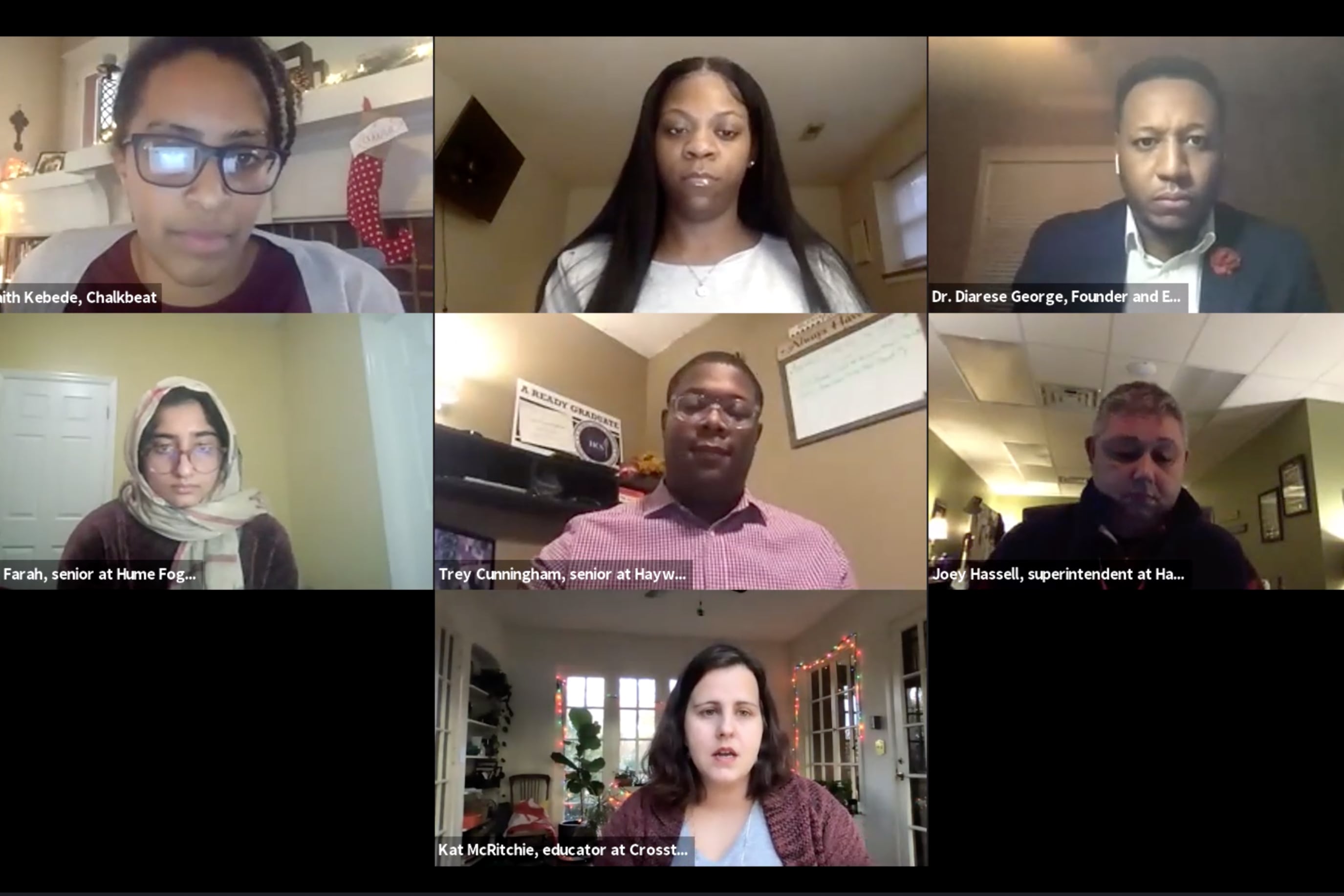While all 50 states require some form of instruction about civics and government, the nation’s public schools generally make little time for students to discuss issues at the heart of American democracy.
“It isn’t talked about enough at our school,” said Ommay Farah, a high school senior in Nashville, on the topic of citizenship and its rights and responsibilities.
Ommay joined educators and other students Monday to brainstorm how schools can foster meaningful classroom conversations in the wake of the most divisive presidential election in modern U.S. history. The online event was hosted by Chalkbeat and The Education Trust in Tennessee.
The panelists agreed that understanding the political and practical issues that divided America in 2020 is too critical to a functioning democracy to limit to a single high school civics course. Civics instruction, media literacy, and discussions about history and current events should be embedded across K-12 curriculum and instruction, they said.
But how exactly to do that can be almost as controversial as the political issues being debated across America.
Kat McRitchie, who teaches humanities at Crosstown High School in Memphis, said the goal should be to create a “brave space” to help students turn honest talk into constructive action. She cited numerous national resources to help.
“It’s happening in other states and places. There’s a movement for action civics,” McRitchie said.
Watch the discussion for ideas and resources on how to help students respectfully learn and grow together — and help educators feel equipped and empowered to lead those conversations. (Having trouble viewing the video on mobile? Go here).
Panel members are:
- Trey Cunningham, senior at Haywood High School, Brownsville, Tenn.
- Ommay Farah, senior at Hume-Fogg Academic Magnet High School, Nashville
- Khadesha Gordon, student at the University of Tennessee-Chattanooga (co-moderator with Chalkbeat reporter Laura Faith Kebede)
- Diarese George, founder and executive director of the Tennessee Educators of Color Alliance
- Joey Hassell, superintendent of Haywood County Schools
- Kat McRitchie, humanities teacher, Crosstown High School, Memphis







